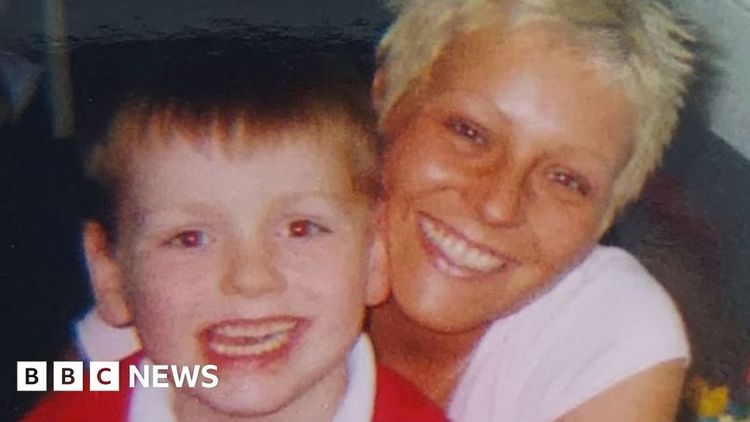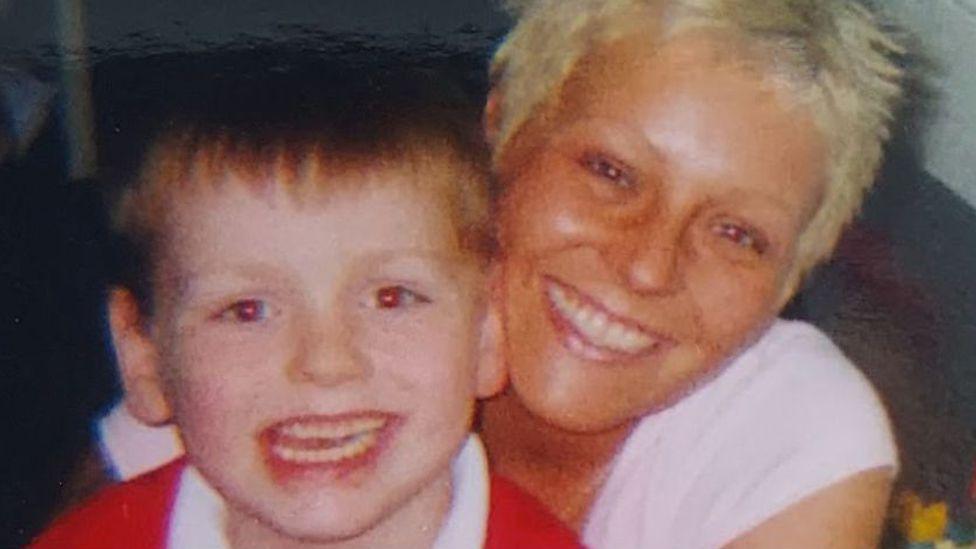Adopted children to have closer contact with birth families

Angela has been out of touch with her two sons since they were taken from her in 2004 and adopted by a different family.

Sanchia Berg and Katie Inman
In the future, adopted children may have the opportunity to connect more closely with their biological families due to significant changes suggested in a report released today. While some families believe these adjustments have been needed for a long time, others are concerned that they might discourage potential adoptive parents.
In 2004, Angela Frazer-Wicks had her two sons taken from her custody and placed for adoption when they were five and one years old. At the time, she was in a harmful relationship and struggled with addiction and mental health issues.
By 2011, Angela had healed from her past experiences, entered a new relationship, and welcomed a baby girl. The local authorities were not part of her daughter's upbringing.
Angela maintained a connection with her sons and their adoptive parents through occasional letters and photos exchanged once or twice a year. However, when the eldest boy reached his teenage years, he informed his adoptive mom that he didn't want to correspond with his birth mother anymore. Although Angela continued to send cards, she received no response for several years.
Suddenly, in 2020, Angela got an unexpected email from her oldest son. It became clear that he had been attempting to reach out to her, but the local authorities had informed him that it couldn't happen.
Last month, Angela finally reunited with her oldest son face-to-face after two decades apart.
"It was incredible for me," Angela shares, "and even more special for my daughter—she’s looked forward to meeting her brother her whole life."
Angela has recently been reunited with her eldest son, two decades after he was taken away from her custody.
Adoption represents a significant intervention by the state in family dynamics. It creates a lasting separation between a child and their biological family, profoundly impacting the child's sense of self. Legally, the child is no longer recognized as belonging to their birth parents, and many adopted children grow up without any contact or knowledge of their birth relatives.
Each year, approximately 3,000 children are adopted in England. This procedure requires approval from judges in family courts, who determine how much interaction the adopted child will have with their biological parents. Typically, this involves sending letters twice a year through a third party.
Although adoption legislation has changed over time, enabling children to learn more about their backgrounds than before, some families believe that in many aspects, adoption remains tied to outdated practices.
A recent report from a group established by the chief judge of the family court recommends that a complete overhaul of the system is necessary.
The report suggests that the traditional practice of “letterbox” communication between adopted children and their biological families is no longer effective. Instead, it advocates for in-person meetings when it is safe to do so.
The highly comprehensive report receives robust backing from Sir Andrew McFarlane, who states that there's no need for legal changes to make this a reality.
The findings are expected to impact adoption hearings in family courts across England and Wales.
Angela Frazer-Wicks reflects on her adoption journey, characterizing it as a "life sentence… devoid of any possibility of appeal." In her role as chair of trustees for the charity Family Rights Group, she expresses satisfaction that mothers like herself will have greater opportunities to maintain connections with their children after adoption.
Angela comments, "This is a monumental change. It's been anticipated for a long time. I really hope we can begin to show more empathy for birth families, who are frequently viewed as the issue."
Cassie (on the left) was taken in by Dee (on the right) when she was three years old. Cassie found the encounters with her biological mother to be distressing.
For some adopted children, connecting with their birth families can be a really beneficial experience. However, in-person meetings may not be the right choice for every child in this situation.
When Cassie was adopted at the age of three, she often felt anxious about the mother she had been separated from.
While shopping with her adoptive parents, Dee and John, Cassie would sometimes request to purchase groceries for her biological mother.
Dee was told that meeting her biological mother in person would provide Cassie with some comfort.
Their meeting at a bustling call center was successful, but the next day, Cassie felt extremely exhausted, looking pale and weak. Concerned, Dee chose to take Cassie to see a doctor. By the time they reached the clinic, Cassie was shaking and unable to stop vomiting.
However, the doctor reassured her that there was nothing physically wrong; Cassie was simply in a state of shock.
For almost two years, Cassie and Dee attended therapy sessions with a specialist. Even after all that time, Cassie continued to be concerned about her biological mother and would often attempt to call her using a toy phone.
They scheduled another meeting in a more peaceful setting, with some support available. Following that, Cassie, now 30 years old, expressed that she didn’t wish to meet her birth mother again.
“I didn’t really feel a strong desire,” she shares. “I had all the details about her.”
Increased Reporting On Family Courts
With the rise of recent adoptions, a different type of risk has emerged. Children can now search for their biological families online, and some may choose to meet them in person. This situation can create tension between the adopted child and their new parents, potentially even jeopardizing the adoption itself.
“The kids often experience a lot of emotional confusion,” explains Sir Andrew McFarlane, who leads the Family Court in England and Wales.
"If you’re trying to figure out your identity in this world and you have some recollection of the family you were with until you were four or five, it's completely understandable to want to find them and reconnect."
Without professional assistance, this could lead to serious problems.
In 2021, a couple shared with the BBC how heartbreaking it was to witness their two adopted sons reject them and get involved in illegal activities after reconnecting with their biological family.
There isn't precise information available on the rate of failed adoptions. According to the organization Adoption UK, this rate ranges from 3% to 9%.
After a four-year period of analysis and discussions, the 170-page report released today suggests that more attention should be paid to whether children who have been adopted should meet in person with important people from their lives prior to adoption.
The report aims to evaluate the adoption process and act as a driving force for beneficial improvements.
The report includes a variety of suggestions, such as updating the legislation regarding international adoption and creating a national database for court adoption records. This would help individuals locate their own documents more easily. Additionally, it advises against using the term "celebration" for the final court appearance when parents are adopting a child.
Numerous adoptive parents believe that the existing "letterbox" method of communication isn't working well. According to the charity Adoption UK, a significant number of adopters worry that the changes proposed in the report will discourage potential adopters at a time when interest in adoption is already falling.
Some people believe it might lead to additional issues.
Nigel Priestley is an expert in adoption law and has personally gone through the adoption process. He understands the challenges that can arise from contact in these situations.
"I believe it's extremely hazardous," he states. "From my perspective, there’s a serious risk that once you unleash Pandora’s Box, it will be impossible to close it again."
A representative from the Department for Education emphasized that the importance of children being raised in a nurturing family is significant and should not be overlooked. For numerous children in foster care, finding a permanent home through adoption can fulfill this need.
"We understand that adoption significantly affects everyone connected to it, and it's crucial to prioritize the child's welfare and ensure it remains central to the entire process."
Do you relate to the challenges mentioned in this story?



















































